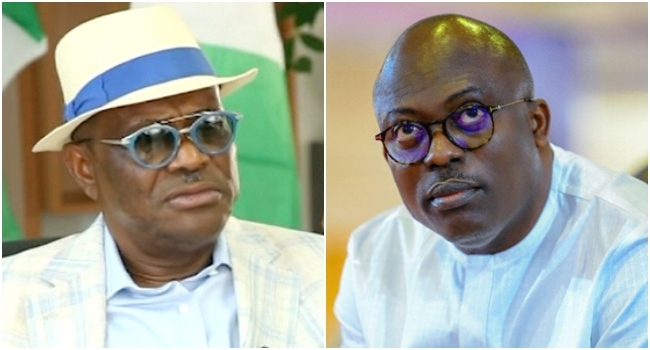In the midst of ongoing political upheaval in Rivers State, the All Progressives Congress (APC) gubernatorial candidate for the 2023 election, Tonye Cole, has voiced his concerns about the impact of the current leadership struggle on the citizens of the state. During an interview on Channels Television’s Politics Today, Cole emphasized that the people of Rivers are bearing the brunt of the political crisis, which has primarily unfolded between the incumbent Governor Siminalayi Fubara and his predecessor, Nyesom Wike. He condemned the stagnation of development within the state, attributing it to the local politicians’ battle for power, and lamented that the interests of the common populace are being sidelined in this struggle for supremacy.
Cole’s comments reflect his frustration regarding a recent Court of Appeal ruling that upheld a Federal High Court decision, effectively nullifying the presentation and passage of the 2024 state budget. He argued that if the welfare of Rivers State residents were genuinely prioritized, the current political turmoil would likely be non-existent. Cole articulated that the ongoing conflict is largely driven by a limited political elite rather than the broader public, suggesting that this small group’s power struggles are depriving the general populace of essential governmental services and infrastructure development. He stated unequivocally, “As we speak today, there is no development,” indicating a growing discontent among citizens who are suffering due to the political machinations at play.
Expressing a sense of urgency, Cole highlighted the precarious position in which Governor Fubara finds himself, noting that the political turbulence is severely affecting effective governance in the state. He explained that by having to present the budget to the assembly, which is led by Martins Amaewhule, Fubara implicitly recognizes this assembly as the legitimate governing body, a situation that complicates his position. According to Cole, this recognition could potentially lead to challenges to Fubara’s leadership, including the likelihood of an impeachment process. The dynamics are further complicated by the fragmented political affiliations in Rivers, as the governor belongs to the Peoples Democratic Party (PDP), while the house assembly recognized by the courts is composed of members from the All Progressives Congress (APC).
The backdrop of this political crisis is a multi-party framework where the local government structures are also aligned with different political ideologies, creating an environment rife with tension. Cole remarked on the hurdles this presents, stating that it is unusual for a state to be governed by three differing political parties simultaneously. This disunity not only undermines governance but also hampers the delivery of vital services to citizens. Such a fragmented political landscape raises concerns about the coordination necessary for effective policy implementation and development initiatives, further exacerbating the stagnation that is reportedly plaguing Rivers State.
The ramifications of this political discord extend beyond mere governance issues; they pose significant risks to the welfare of ordinary citizens who find themselves caught in the crossfire of political rivalries. Cole asserted that the turbulence created by the political elite ultimately impacts the average citizen, particularly the vulnerable in society who rely on robust governance for their basic needs and development opportunities. The sentiment of being overlooked and marginalized resonates strongly throughout the community, leading to disillusionment with the political process. This, in turn, calls for a reevaluation of priorities by the state’s political leaders to ensure that the needs of the constituents are placed at the forefront.
In conclusion, Tonye Cole’s insights into the political crisis in Rivers State raise critical questions about the current state of governance and the practical implications of ongoing power struggles. His observations about the disconnect between political maneuvers and the actual needs of the populace suggest a significant disconnect in leadership priorities. To restore effective governance and stimulate development in Rivers, a shift towards more inclusive and transparent political practices may be necessary. The situation demands attention not only from political leaders but also from the broader citizenry to advocate for their needs and engage in efforts to cultivate a more cohesive and functional government that serves the interests of all Rivers State residents.














